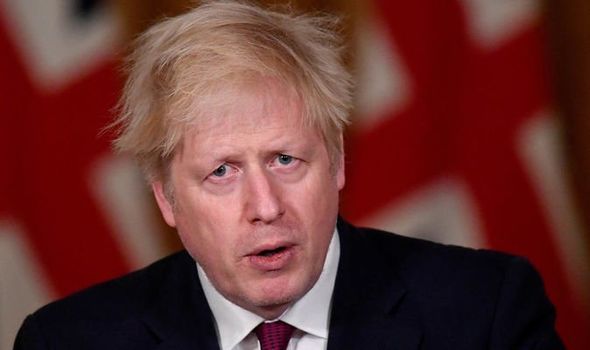LONDON (Parliament Politics Magazine) – After having survived a vote of confidence, Boris Johnson is now facing pressure from his MPs to slash taxes.
Supporters of the prime minister believe the decision will help the Conservative Party re-establish unity and help the citizens cope with growing living costs.
Mr Johnson, however, has been accused of “letting things slide” by ex-cabinet minister David Davis, who has advised him to “get his act together” or quit power.
According to a source in No. 10, the PM wants to implement tax cuts “in the long run.”
They also cautioned that proceeding too quickly in this direction risks increasing government borrowing and debt.
Mr Johnson will appear in front of the House of Commons in Prime Minister’s Questions later today for the first time since four out of ten of his own MPs voted to remove him from office in a confidence vote on Monday.
The outcome came after months of backlash over parties held in Downing Street during the lockdown, with the prime minister himself receiving a fine for attending one of them. It also occurred at a time when the expense of living was quickly rising.
Mr Johnson has asked his party to “draw a line” under questions when it comes to doubts about his leadership, but some Conservative MPs have continued to publicly demand for him to step down.
Burden of tax
The Prime Minister, whose administration recently hiked National Insurance to aid with NHS backlogs and social care funds, is now under pressure of announcing policies that hold an appeal to the MPs from his party.
When he spoke with them before Monday’s vote, he is alleged to have hinted at tax cuts, which are currently at their highest level since the 1940s.
“We will have the scope, by delivering tax cuts, I think, to deliver considerable growth in employment and economic progress.” he stated during the cabinet meeting on Tuesday.
However, according to the BBC, no particular measures were discussed, and a No 10 source stated on Wednesday that while the prime minister wanted to decrease taxes “in the long run,” cost-of-living assistance and dealing with the expense of Covid measures took priority at this point.
Next month, a National Insurance threshold increase will take effect, boosting the amount people may earn before they have to start paying it up to £12,570.
However, NI payments increased in April, meaning that everyone earning more over £9,880 a year will have to pay 1.25p more in the pound.
Corporations will also pay higher tax, with the corporation tax rate on profits rising from 19 percent to 25 percent for larger businesses starting in 2023.
In an effort to stimulate investment, the autumn Budget is expected to include some tax cuts for businesses.
Kwasi Kwarteng, Business Secretary told the BBC on Tuesday that he wanted tax cuts as soon as feasible – and his cabinet colleague, Sajid Javid, Health Secretary agreed on Wednesday, saying, “I would like to see us do more on tax reduction.”
All of the tax increases that they had brought in, and the corporation tax increases that were set to come in soon, had to be reversed, said Lord Frost, a former Brexit minister who resigned last year.
To raise revenues and growth for the nation, [the government] needed to bring down the taxes, trade Minister Penny Mordaunt told the Guardian.





